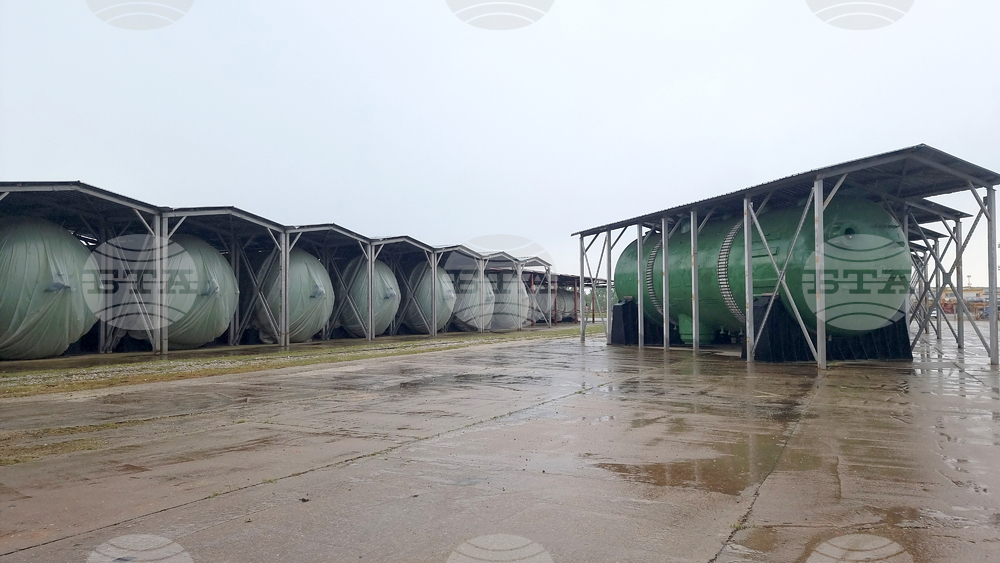site.btaDecember 19, 2002: Government Unblocks Construction of Belene Nuclear Plant


On December 19, 2002, the Council of Ministers adopted a decision unblocking the construction of the Belene Nuclear Power Plant (NPP). The building of Bulgaria's second nuclear power facility began in 1987 but was suspended by the government in 1991 due to lack of resources for the project.
The studies for the construction of Bulgaria's second NPP began in the early 1970s, resulting in the selection of a site near the Danubian town of Belene in 1981. Initially, the construction of four energy units was planned, with reactors type WWER-1000/V-320, developed by AEP - Moscow, shows information on the project's website. The main construction began in 1987 and by 1990, part of Unit 1's building was constructed and more than 47,000 tonnes of equipment was delivered.
Following is BTA's news piece on the December 19, 2002 decision to resume the plant's construction:
The Bulgarian Government decided to unblock the construction of the Belenе Nuclear Power Plant, revoking a 1991 Council of Ministers decision on suspension of the facility's completion, Energy and Energy Resources Minister Milko Kovachev told a news conference on December 19. Four studies, which are expected to be completed in about six months, will have to be conducted before making a final decision on resumption of the construction project. The studies will be financed by the National Electric Company (NEK), which manages the site.
The construction was put on hold for lack of project financing opportunities. Since then, a number of seismic studies have been conducted, and the site is considered to be fully compliant with the requirements for construction of nuclear facilities, Kovachev noted.
In August 1991, the Government commissioned the Energy Committee to organize a feasibility study for construction of a steam gas power plant on the Belene N-Plant site or another alternative site. A year later, on February 6, 1992, construction of the second N-plant was discontinued.
Since that decision, the Belene site and the N-plant project have been repeatedly studied in detail by expert missions of the International Atomic Energy Agency (IAEA) with the assistance of the then Committee for the Use of Atomic Energy for Peaceful Purposes, the Russian Academy of Sciences and the Bulgarian Academy of Sciences.
Currently, the equipment that has been delivered is maintained on the Belene site in a mothballed condition as required by the manufacturers. The state of the site is checked periodically, and it is maintained in radiness for a possible go-ahead of a completion of the N-plant.
The Government has assigned the Minister of Energy to organize the preparation of an assessment of nuclear safety and radiation protection, an environmental impact and physical security assessment, an assessment of the socio-economic significance of the N-plant's construction, and an assessment of radioactive waste and spent nuclear fuel.
The Energy Minister expects investment bids for a new nuclear power plant at Belene. "World manufacturers of nuclear equipment have repeatedly stated interest in such a venture," he said. One such occasion was Kovachev's recent visit to the Czech Republic, where the hosts presented Czech expertise in mechanical engineering and other industries with regard to nuclear power generation, as implemented in the Temelin nuclear plant. "The Government will take its due share of responsibility for the project," he said but added that it is too early to define the role of the Government in more details.
***
In 2008, an agreement was signed between NEK and Russia's Atomstroyexport to conclude a contract on the resumed construction of Belene NPP, with two units of 1000 MW each. A German company was selected as the strategic investor but it withdrew a year later. In 2012, the Council of Ministers decided to stop the construction and the National Assembly backed that decision.
In 2013, a national referendum was held asking citizens whether Bulgaria should develop nuclear energy through the construction of a new plant. Due to only 20.22% of voters participating, the referendum's result of 60.6% in favour of the Belene NPP were not biding for the National Assembly and the project was not re-launched.
By an arbitration court decision of 2016, NEK had to pay Atomstroyexport EUR 601,617,133 for the plant's equipment, which was then delivered in stages to the Belene site.
In 2018, Parliament adopted a decision to resume seeking potential investors for the construction of Belene NPP, but in 2023 the Council of Ministers revoked that decision. Parliament tasked the Energy Minister to negotiate with Ukraine on the sale of Belene's equipment still stored on site. The negotiations continue.
/DS/
Additional
news.modal.image.header
news.modal.image.text
news.modal.download.header
news.modal.download.text
news.modal.header
news.modal.text

